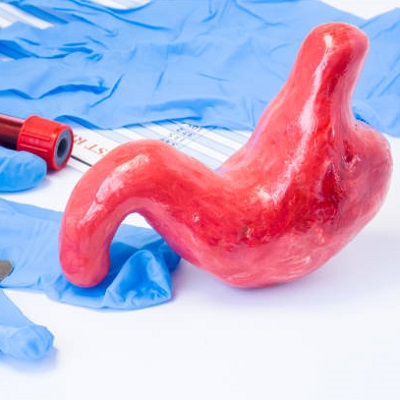Obesity-related struggles can be difficult and stressful. There may need to be more than dieting and exercise alone to help them reach their goals of better health and way of life. Bariatric surgery may be a game-changer in these situations. However, how can you determine whether you are a good fit for bariatric surgery? We will review the pros, drawbacks, and possible hazards of weight reduction surgery in this extensive guide to help you make an informed choice about managing your weight.
What is Bariatric Surgery?
This procedure is a type of surgery that modifies the anatomy of the digestive system to facilitate weight loss. It achieves and sustains a healthier weight for people by either cutting back on food consumption, restricting the absorption of nutrients, or doing both at once. Bariatric operations come in various forms, such as adjustable gastric banding (Lap-Band), gastric bypass, and gastric sleeve.
Am I The Right Candidate for Bariatric Surgery?
Am I The Right Candidate for Bariatric Surgery? It is important to determine whether you satisfy the requirements and have a complete understanding of the operation before thinking about bariatric surgery.
Here are some crucial things to remember:
- BMI (body mass index): If a person has having BMI of 40 or above, Bariatric surgery is the best solution for them. In addition, for persons having a BMI of 35 and suffering from any health issues due to weight, this surgery is also the best option for them.
- Past Attempts at Losing Weight: The candidates must have tried consistently to reduce weight with diet, exercise, and other conventional techniques but have failed.
- Health Conditions Associated with Obesity: Bariatric surgery could be a good choice if you suffer from obesity-related health issues, including diabetes, high blood pressure, or sleep apnea.
- Dedication to Modifying One’s Lifestyle: A commitment to long-term lifestyle adjustments, such as dietary adjustments and increased physical activity, is required of successful applicants.
- Psychological Assessment: To gauge their emotional and mental preparedness for the surgery and accompanying obstacles, candidates frequently go through psychological testing.
- Age and State of Health: The general recommendation for bariatric surgery is for those between 18 and 65, while there may be exceptions depending on the patient’s specific needs and health.
Advantages of Bariatric Surgery
The benefits of bariatric surgery go far beyond losing weight, such as:
- Better Health: A lot of individuals see notable improvements in disorders like diabetes, hypertension, sleep apnea, and other obesity-related illnesses.
- Sustainable Weight Loss: Bariatric surgery helps people maintain a healthier weight by producing long-term weight loss outcomes.
- Improved Quality of Life: Patients who undergo bariatric surgery frequently report increased mobility, self-esteem, and general well-being.
- Lower Risk of Mortality: Surgical weight loss can lower the risk of obesity-related early death.
- Effective Treatment: When conventional weight-loss techniques have failed, bariatric surgery may be a viable choice.
Risks Involved in Bariatric Surgery
It is important to be informed of any possible risks involved in this surgery, such as:
- Surgical Dangers: Bariatric treatments include the same dangers as any other surgery, including the possibility of bleeding, infection, and anesthesia-related side effects.
- Inadequate Nutritive Status: Nutritional deficits may result from changes to the digestive tract that affect the absorption of nutrients. Dietary monitoring and lifelong supplements are crucial.
- Shifts in Lifestyle: Maintaining healthy lifestyle changes, such as food adjustments and exercise, is essential for long-term success.
- Psychological and Emotional Difficulties: Emotional and psychological difficulties following bariatric surgery may arise, including adjusting to a new body image and managing any relationship adjustments.
- Possible Return: Even though weight loss is frequently substantial, if lifestyle modifications are not maintained, there is a chance of weight gain.
Choosing the Best Bariatric Procedure
The best bariatric procedure for you will depend on your particular requirements and your health. Your healthcare provider will assist in choosing the best course of action, including:
- Gastric Bypass: This technique limits the absorption of nutrients and helps people lose weight by rerouting the digestive system and decreasing the stomach size.
- Gastric Sleeve: This procedure reduces food intake by removing a piece of the stomach to leave a smaller, more like a banana.
- Adjustable Gastric Banding: Restricting food intake by encircling the stomach with an adjustable band is known as adjustable gastric banding.
- Duodenal Switch: This operation offers malabsorptive and restrictive effects by rerouting the intestines after a partial gastrectomy.
- Mini Gastric Bypass: This procedure entails rerouting a portion of the small intestine and forming a smaller stomach pouch, much like a gastric bypass.
Consult With the Best Bariatric Expert
It is important to see a bariatric specialist before having bariatric surgery. Your healthcare practitioner will examine you, discuss your weight reduction objectives, and explain the procedure’s advantages, hazards, and other factors.
For bariatric surgery in Rawalpindi and Islamabad, Enfield Royal Clinic is the best option for you. Their expert surgeon deeply analyzes your body and desired results and makes a best-fit solution. During surgery, the latest technological equipment is used. It will help you in a safe surgery.
Conclusion
Bariatric surgery can significantly improve obesity and related health issues. A good candidate depends on factors like BMI, past weight loss attempts, health issues, and lifestyle preparation. Consult a healthcare provider to explore options and choose the right procedure. With the right mindset and commitment, bariatric surgery can help achieve a healthier weight and enhance quality of life.










Leave a Reply